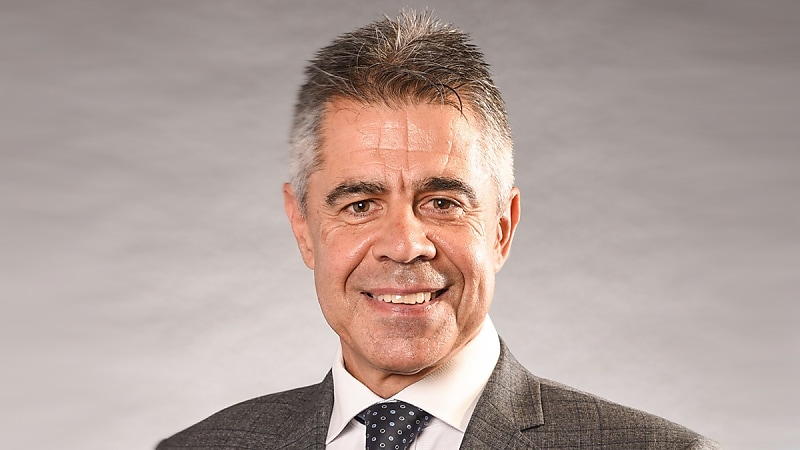Treasurer’s claims ‘farcical’: sector leaders
The SMSF Association has said the Treasurer’s comments that no alternative to the $3 million super tax had been put forward is “farcical”.
Peter Burgess, SMSF Association CEO, said the industry had put forward “many alternatives” that would achieve the desired policy outcomes without all the complexity, cost, unintended consequences, and disruption to the flow of investment funds so critical to many sections of the economy.
“At no time has Treasury shown any genuine desire to consult or consider alternatives,” he said.
Tony Greco, senior tax adviser with the Institute of Public Accountants, said the IPA learnt very early in the consultation process that the method proposed was supported by APRA funds as being the best option administratively to implement.
“I do not believe due consideration was given to alternative models as Treasury was fixated on pushing ahead with its proposed methodology,” he said.
“It’s ironic that the new tax will impact the SMSF sector more than the APRA funds. SMSFs can perform calculations on a member balance, so alternative methodologies to reduce the concessionary benefits for members with high balances are viable.”
Greco continued that the proposed methodology does not accord with good principles of taxation.
“The Senate inquiry did not engage in alternatives and was comfortable with the methodology on the basis that it impacted only a small portion of the population (so why should we care) and less so on whether it adhered to good taxation principles,” he said.
“Voluntary compliance to tax laws is generally maintained when taxes are levied fairly, and in the case of this proposal, we are already seeing behavioural changes due to the perceived unfairness as taxpayers come to terms with implications of this measure coming to fruition on 1 July 2025.”
Tony Negline, CA ANZ superannuation and financial services leader, said the organisation does not support the Better Targeted Superannuation Tax Concession policy and has been highlighting the bill’s design flaws since it was announced in 2023.
“We are particularly concerned about the taxing of unrealised capital gains and the precedent this would set. As a result, CA ANZ has participated in every consultation opportunity available, which includes making submissions to Treasury and the Senate economics committee,” Negline said.
“In those submissions, we explained the design flaws of the bill, the cash flow concerns the amendments would likely create and suggested alternative solutions. If the government is concerned that superannuation is no longer being used as intended, there are other options available, some of which we have suggested in our previous submissions.”
Negline said these include imposing an additional tax on super fund withdrawals for those with a total super balance of more than $3 million, so the tax is being paid at the time of exiting the super fund, or forcing those with a total super balance above a specific threshold to remove the excess amounts from superannuation.
“The Parliament now has an opportunity to amend this legislation so the taxing of unrealised capital gains precedent is not set. However, if the bill is passed, we will work with the government to ensure the policy is implemented as best as possible, now and in the future,” he said.
Natasha Panagis, head of technical for the Institute of Financial Professionals Australia, said the IFPA has been actively involved in the consultation process since the government’s proposal was first announced.
“We made multiple submissions, participated in Treasury roundtables, and appeared before the Senate economics legislation committee alongside other industry bodies to raise serious concerns about the Division 296 tax and to argue that the bill, in its current form, should not be passed without significant amendments to ensure fairness and equity for all Australians,” Panagis said.
“We put forward a number of alternative approaches for Treasury and the government to consider. Unfortunately, these have largely been ignored. From the outset, we have maintained that if changes to tax settings for larger superannuation balances are deemed necessary, there are simpler, fairer options – most notably, taxing actual earnings above $3 million rather than taxing unrealised gains. This approach aligns with existing tax principles and avoids punishing Australians for paper gains that may never materialise.”
Panagis added that the IFPA also advocated that, should the existing Division 296 framework be retained, several critical changes are needed – beginning with a comprehensive review of the superannuation system as a whole.
“Continued piecemeal changes only add complexity and undermine confidence in the system,” she said.
“Disappointingly, the consultation process felt more like a procedural formality than genuine engagement. The terms of reference specifically excluded comment on key elements such as the $3 million cap, lack of indexation, and the methodology for calculating the tax. Despite this, many industry representatives – including IFPA – raised these issues anyway, only to be told, unofficially, that they were off the table.”
She said the Treasury claims to have consulted extensively with industry, but conducting meetings does not equal meaningful consultation – especially when the lived experience of industry experts is dismissed.
“Treasury’s goal of achieving ‘sector neutrality’ is also fundamentally flawed: the three sectors of the super system operate under different valuation methodologies, making harmonisation impractical. If legislated, Div 296 will introduce significant horizontal inequities across superannuation fund types,” Panagis said.
“For instance, constitutionally protected funds may be exempt altogether, defined benefit fund members will face a complex, deferred tax liability, and others – particularly SMSFs – will be subject to annual tax on unrealised gains.
“This isn’t about whether high-balance members should contribute more tax. It’s about how that tax is implemented. Unrealised gains, a non-indexed cap, inequitable loss measures, and immediate tax liabilities create complexity, cash flow stress, and a real risk of double taxation – particularly for SMSFs holding illiquid assets like property.”


